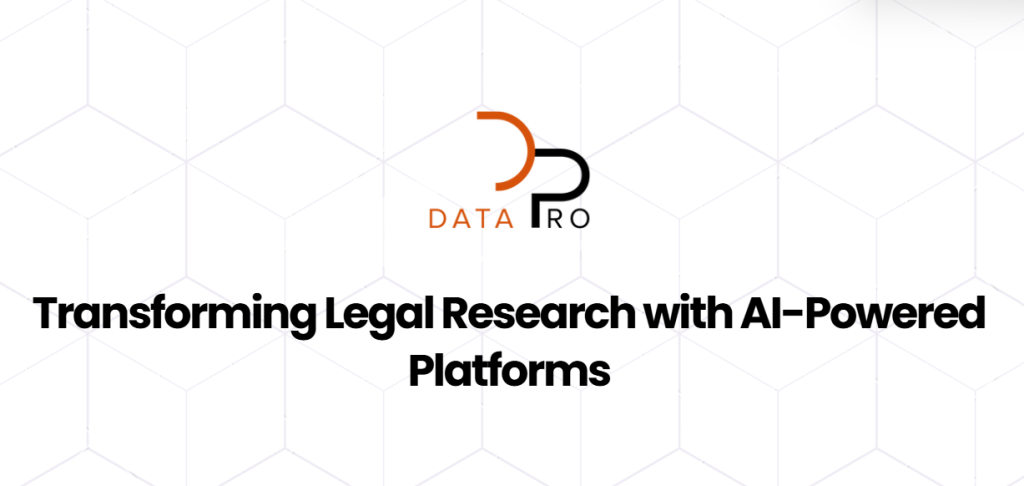
Transforming Legal Research with AI-Powered Platforms
Legal research is the backbone of informed legal decision-making, but it has long been a time-intensive and often inefficient process. Lawyers, paralegals, and legal scholars routinely sift through vast amounts of case law, statutes, and scholarly commentary to construct compelling arguments or ensure compliance. In 2025, Artificial Intelligence (AI) is reshaping this process with unprecedented precision and speed. From intelligent data retrieval to autonomous research assistants, AI-powered platforms are transforming how legal research is conducted and the impact is only just beginning.
This article explores how AI is revolutionizing legal research, the key innovations driving this transformation, and what we can expect as AI becomes more deeply integrated into the legal workflow.
Key Innovations in AI-Powered Legal Research
1. Autonomous Research Agents for Legal Analysis
AI is no longer limited to keyword-based document searches. Today, AI agents built using frameworks like LangChain and LLMs (Large Language Models) can autonomously conduct end-to-end legal research. These agents interpret complex legal queries, break them down into structured sub-questions, and explore credible databases, news archives, and legislation to surface accurate, relevant information.
By 2025, these autonomous agents are becoming more context-aware and capable of cross-referencing multiple sources in real-time. This empowers legal professionals to receive concise yet comprehensive insights, saving hours of manual reading and reducing the risk of overlooking critical information.
2. Vector Databases & Retrieval-Augmented Generation (RAG)
Traditional legal research tools rely heavily on exact text matching, which limits their ability to understand the context or nuances in legal language. In contrast, AI-powered platforms now leverage vector databases (like ChromaDB) and RAG techniques to retrieve documents based on semantic meaning rather than just keywords.
This shift is game-changing for legal research. It enables AI to understand that a query about “wrongful termination” might relate to employment discrimination, contract breach, or labor law violations delivering more nuanced results that reflect the true intent of the researcher.
3. Real-Time Legal Intelligence with NLP
Natural Language Processing (NLP) is the engine behind AI’s ability to understand and interact with human language. In legal research, NLP-driven systems now process thousands of pages of legal content, statutes, case law, academic papers, and regulations within seconds.
By understanding legal syntax and precedent hierarchies, NLP allows AI to distinguish between persuasive authority and binding case law. Advanced models even annotate documents automatically, identifying and summarizing key legal principles, enhancing legal scholars’ ability to interpret and apply the law more effectively.
4. Enhanced Source Tracking & Research Transparency
One of the biggest challenges in AI-generated research is credibility. Legal professionals need to know not just the answer, but where the answer came from.
Modern AI legal platforms now emphasize source traceability as a core feature. For every summary or conclusion provided, these tools include links to original documents, case citations, and relevant statutes ensuring that every claim can be validated. This transparency builds trust and enables attorneys to confidently cite AI-supported findings in court filings or scholarly work.
5. Personalized Legal Knowledge Systems
AI is also making research personal. Instead of one-size-fits-all search tools, today’s platforms offer tailored knowledge experiences. Whether a user is a corporate lawyer researching antitrust regulation or a first-year associate looking for case law in torts, AI adapts to their preferences, jurisdictional needs, and subject-matter focus.
This customization is achieved through machine learning models that learn from users’ past research behaviors and continuously refine their results. As legal professionals interact more with these systems, the research experience becomes faster, more relevant, and deeply aligned with each user’s area of expertise.
Real-World Benefits of AI in Legal Research
Increased Efficiency and Reduced Costs
Lawyers often bill by the hour, but clients increasingly demand value. AI slashes the time needed for research, enabling firms to complete more work with fewer resources. This translates into lower costs for clients and increased throughput for firms without sacrificing quality.
Greater Accessibility to Justice
AI democratizes legal knowledge. Small law firms, solo practitioners, and even individuals without legal backgrounds can now access powerful research tools that were once the domain of elite firms. With AI-powered platforms, anyone can explore case law, understand legal frameworks, and prepare for litigation with confidence.
Higher Quality Legal Arguments
By rapidly synthesizing large volumes of information and uncovering obscure but relevant precedents, AI platforms empower lawyers to build more robust, evidence-backed arguments. This strengthens legal advocacy and leads to more just outcomes.
Predictions for the Future of Legal Research
1. The Rise of Fully Autonomous Research Assistants
By late 2025, we will likely see AI agents capable of running complete legal research cycles autonomously. From interpreting a client’s legal issue to generating a structured memo complete with citations, these assistants will become indispensable tools in every legal office.
They won’t replace lawyers but they will act as expert-level paralegals, accelerating every stage of research.
2. Integration into Law School Curriculums
Law schools will begin teaching students how to interact with and interpret outputs from AI research platforms. Legal education will evolve to include courses on prompt engineering, model bias, and how to vet AI-generated legal data, a necessary skill set for the next generation of legal professionals.
3. Cross-Jurisdictional Intelligence
Future AI systems will be capable of comparing legal frameworks across jurisdictions and even translating precedents into localized equivalents. For global firms or international cases, this will enable a far more integrated and intelligent research approach.
4. Ethical Oversight and Algorithm Transparency
As reliance on AI grows, so will scrutiny. Legal professionals and regulators will demand more explainable AI systems that can justify why they returned a specific result. Companies that build transparent, auditable legal research tools will lead the market.
5. Multi-Modal Legal Research
Beyond text, AI will begin incorporating multimedia into legal research. This includes analyzing video evidence, audio testimonies, or digital forensics data alongside textual case law—ushering in a more holistic form of legal intelligence.
Conclusion
AI-powered platforms are not just optimizing legal research, they are reinventing it. From real-time document analysis to autonomous agents and semantic retrieval, legal professionals now have access to tools that enhance their expertise, reduce overhead, and improve client outcomes.
In the near future, legal research will no longer be defined by hours spent in databases, but by how effectively professionals collaborate with AI to unlock insights. Law firms, legal departments, and educational institutions that embrace these advancements will not only stay ahead, they will shape the next era of legal practice.
In 2025, AI won’t just support legal research. It will be the new research partner.
Innovate With Custom AI Solution
- 12 Courtyard Pl,
Lexington, MA 02420 - (617)319-0174
- corp@dataprocorp.tech
